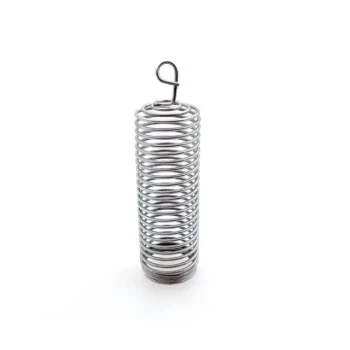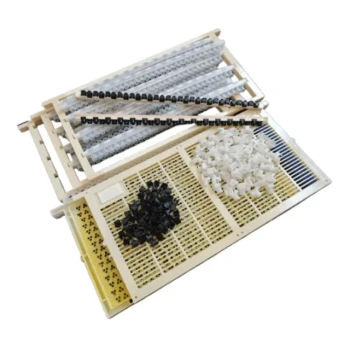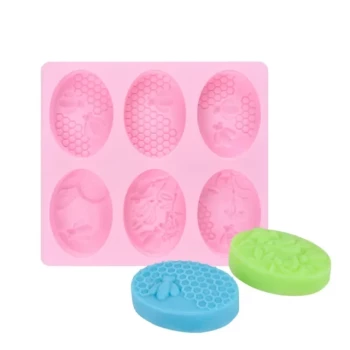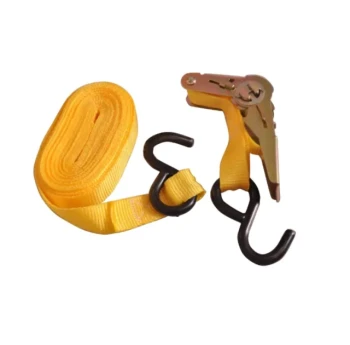Successful queen mating hinges on minimal interference. During the critical period when a virgin queen takes her nuptial flights, there are two primary actions you must avoid at all costs: opening the nucleus hive (nuc) for inspection and moving the hive to a new location. These disturbances are the most common and preventable causes of mating failure.
A virgin queen's mating flights are a brief, high-stakes window of activity. Any disturbance, from a quick inspection to a minor relocation, can cause her to be lost, killed, or rejected by her own colony upon return, jeopardizing the future of the entire hive.
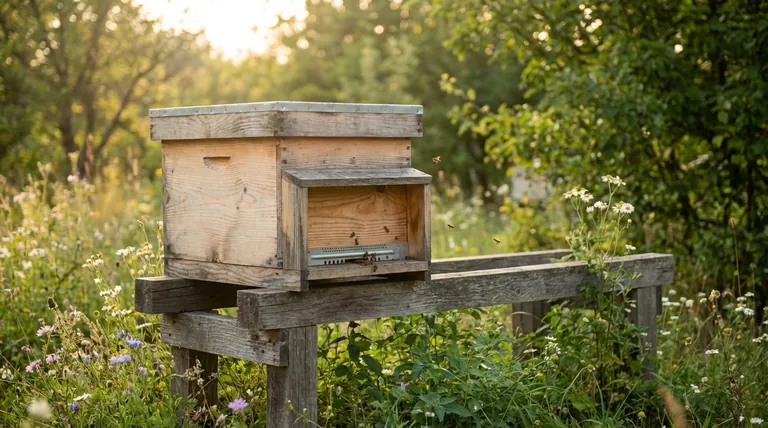
The Queen's Perilous Journey
To understand what to avoid, you must first understand the fragile process the queen undertakes. This isn't a casual flight; it's a series of precise, risky events that are easily disrupted.
The Orientation Phase
Shortly after emerging, a virgin queen performs several short orientation flights. She flies in circles around the hive, memorizing its specific location, color, and surrounding landmarks.
This process creates a "GPS lock" on her home's exact position. It is an essential prerequisite for a successful mating flight.
The Nuptial Flight
On a warm, clear afternoon, the queen will leave the hive for her true nuptial flight. She flies much farther, seeking a "Drone Congregation Area" (DCA) where she will mate with multiple drones.
This flight is fraught with danger, from predation by birds to the risk of getting lost in bad weather. She relies entirely on her earlier orientation to find her way back.
The Consequences of Disturbance
Nearly all mating failures can be traced back to human interference during this critical window. Your best intention can lead to the loss of the queen.
Why You Must Not Move the Hive
Moving the hive, even by a few feet, is the single most catastrophic error. If the queen has already taken her orientation flights, she will return from her mating flight to the original location, not the new one.
Unable to find her hive, she will become lost and die, and the colony will be left hopelessly queenless.
Why You Must Not Open the Hive
Opening the hive for an inspection creates chaos and stress. This can cause the queen to delay or abort her mating flights, pushing her past her window of peak viability.
Worse, when she returns from mating, she smells of the various drones she encountered. A disturbed or agitated colony is more likely to perceive her as a foreign invader and "ball" her—surrounding and killing her.
Understanding the Trade-offs: The Urge to "Just Check"
The waiting period is stressful for the beekeeper. The desire to confirm the queen's presence and progress is strong, but giving in is often a self-defeating act.
The Cost of Impatience
The cost of a premature inspection is the potential loss of the queen and the time and resources invested in raising her. A colony that loses its virgin queen may not have the resources (eggs or young larvae) to raise another.
Patience is not passive; it is an active and necessary component of successful queen rearing.
When Is It Safe to Inspect?
The safest course of action is to wait. A good rule of thumb is to allow at least 10-14 days after you expect her to have mated before performing a quick inspection.
By this time, a successful queen should have begun laying. You are not looking for the queen herself, but for the evidence of her success: a pattern of single eggs in the bottom of the cells.
Making the Right Choice for Mating Success
Your actions in the two weeks following a queen's emergence will determine the outcome. Your strategy should be one of deliberate inaction.
- If your primary focus is maximum success rate: Leave the mating nuc completely undisturbed for a full two weeks after the queen's emergence.
- If you suspect a problem early on: Resist inspecting. Instead, observe the hive entrance for signs of a healthy colony, such as bees bringing in pollen.
- If you absolutely must move the hive: Do it only at night before she could have possibly taken any orientation flights, or wait until she is confirmed laying.
Patience during this brief period is the most powerful tool for ensuring a strong, productive colony for the season ahead.
Summary Table:
| Action to Avoid | Primary Risk | Consequence for the Colony |
|---|---|---|
| Moving the Hive | Queen returns to original location | Queen is lost; colony becomes hopelessly queenless |
| Opening the Hive | Stress causes flight delay or balling | Queen is killed or fails to mate; colony fails to thrive |
Equip your apiary for success with HONESTBEE.
A successful mating period is just the beginning. A strong, productive colony requires reliable, high-quality equipment. HONESTBEE supplies commercial apiaries and beekeeping equipment distributors with the durable, wholesale-focused supplies needed to build and maintain thriving operations.
Let's discuss your needs. Contact our team today to learn how our products support every stage of the beekeeping lifecycle, from queen rearing to honey production.
Visual Guide
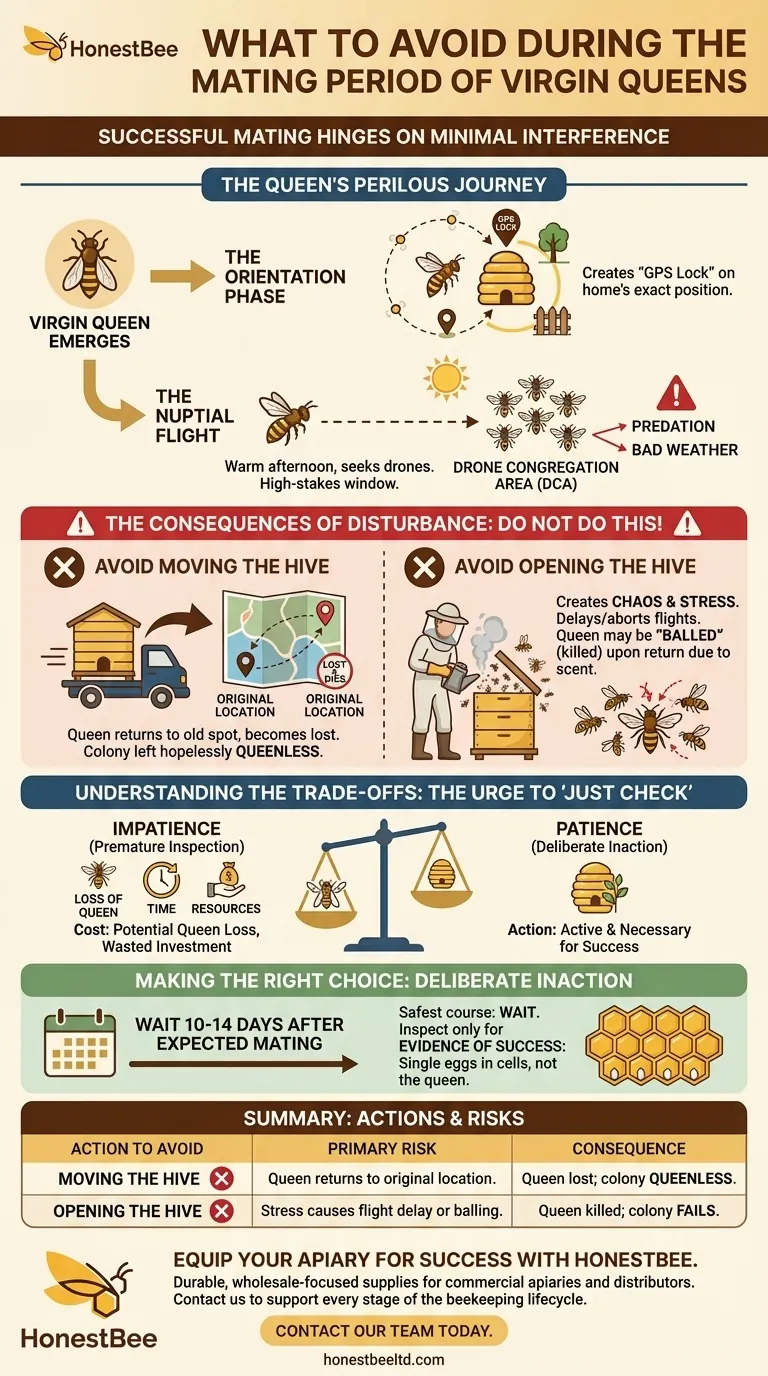
Related Products
- Jenter Queen Rearing Kit Complete Set for Bee Breeding
- Durable Galvanized Steel Spring Queen Bee Cage
- Nicot Queen Rearing Kit for Beekeeping and Grafting in Nicot System
- No Grafting Queen Rearing Kit: System for Royal Jelly Production and Queen Rearing
- Brown Nicot Queen Cell Cups for Breeding Queen Bees Beekeeping
People Also Ask
- What functional role do cell bars and blocks play when assembling a queen rearing frame? Essential Components for Rearing
- Why is a high-precision BOD Incubator utilized during the queen bee emergence stage? Ensure Superior Queen Quality
- How does a grafting frame optimize the production workflow in artificial queen rearing? Scale Your Queen Production
- What are the specialized hives used in queen rearing? Master the 3-Hive System for Queen Success
- Why are specialized queen mating and breeding stations necessary? Ensure Superior Genetics for Your Apiary
- What is the impact of specialized queen rearing and colony splitting tools on scalability? Scaling Your Apiary
- How is the original colony configured after the cell starter has been set up on Day 0? Master Your Queen Rearing Hive
- How is a 'cell starter' or 'swarm box' prepared on Day 0? Expert Guide to High Queen Acceptance

